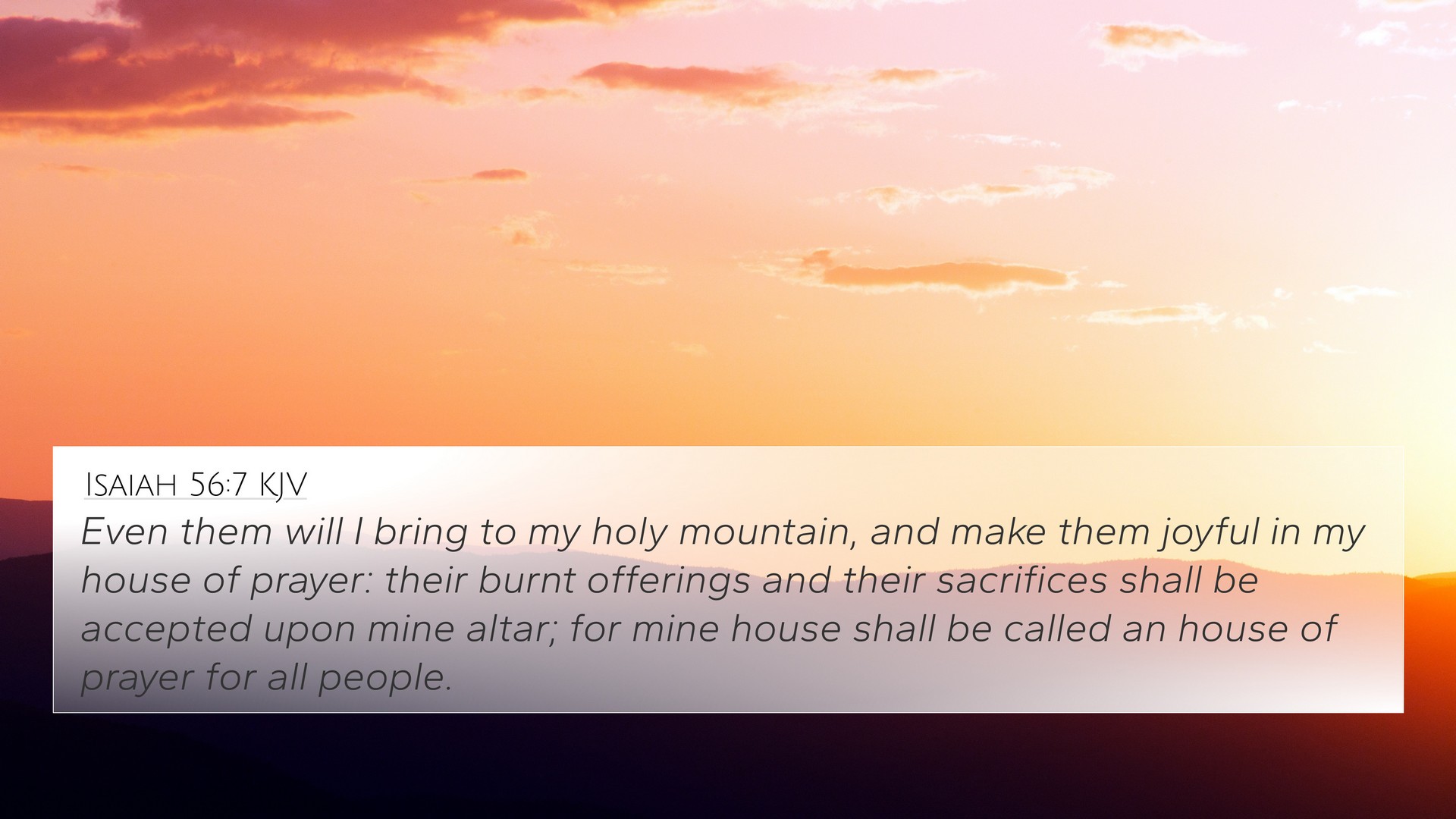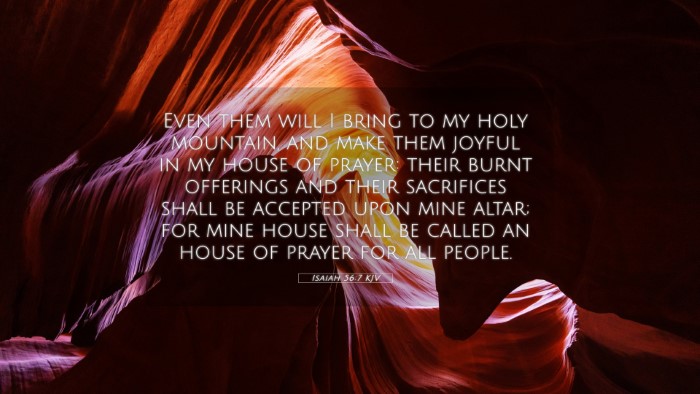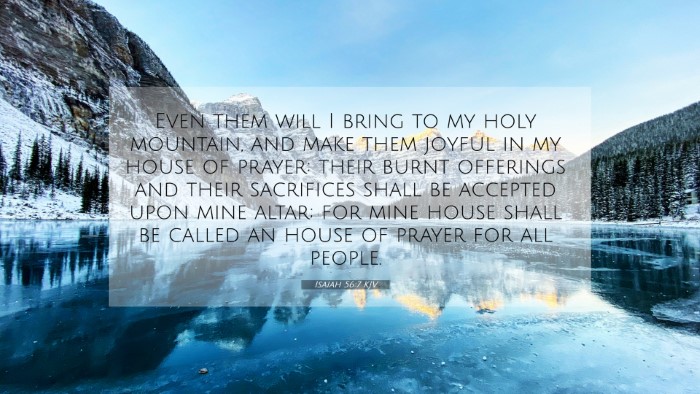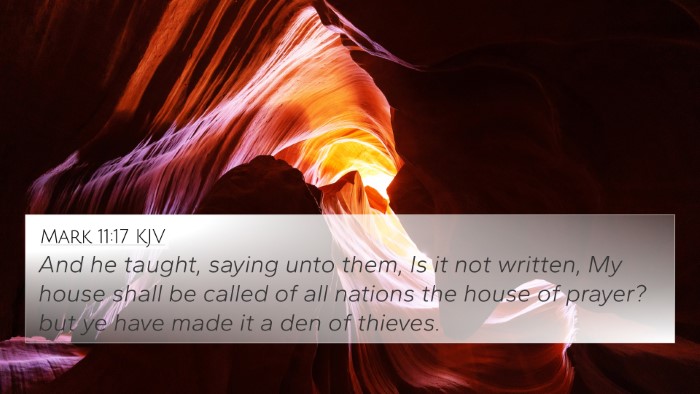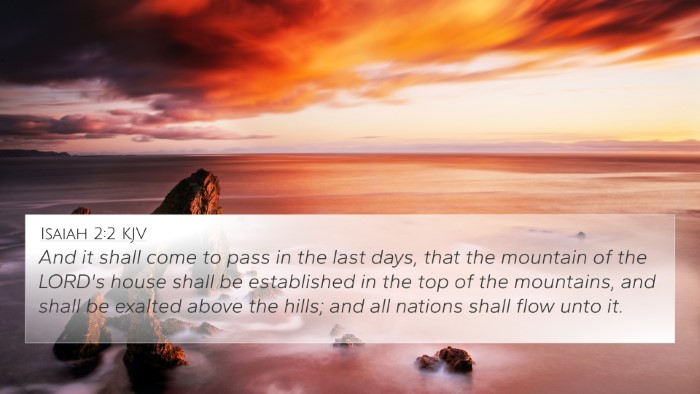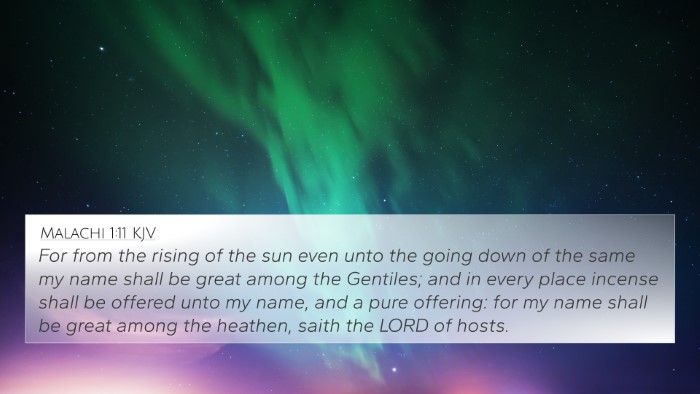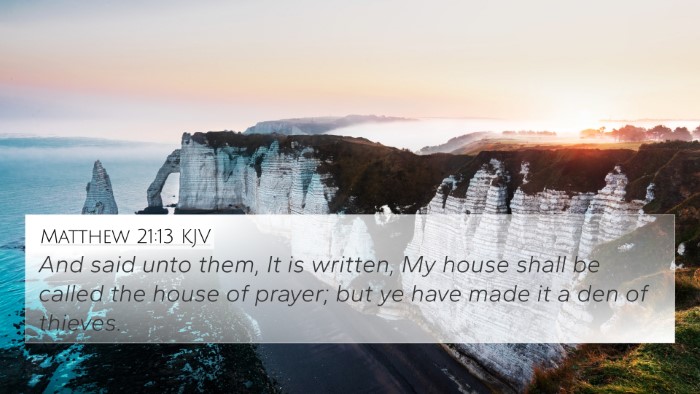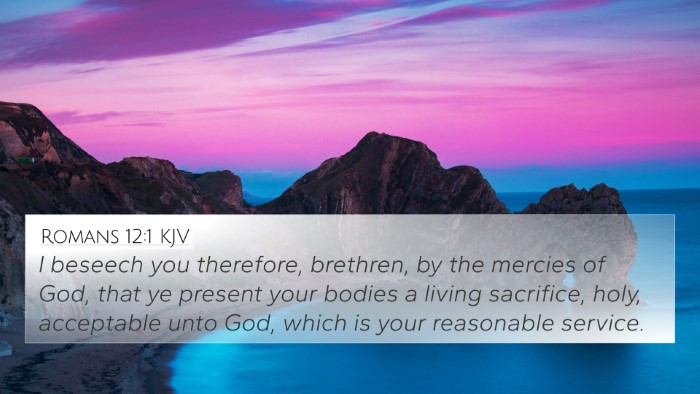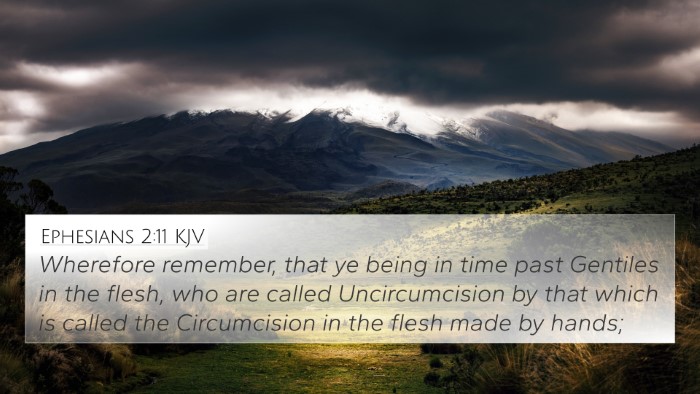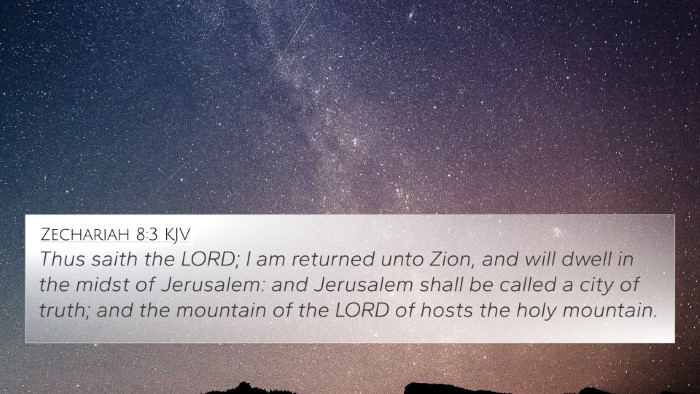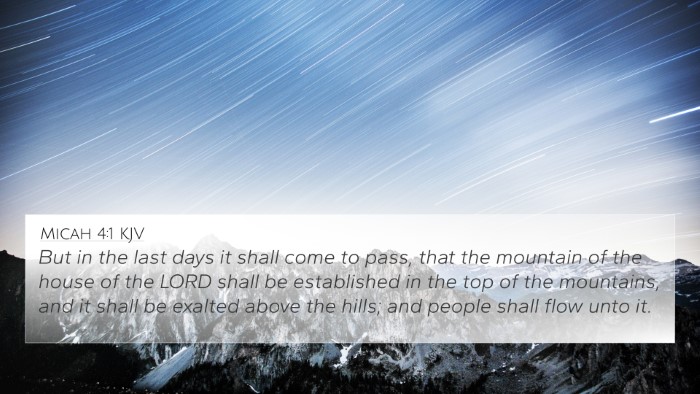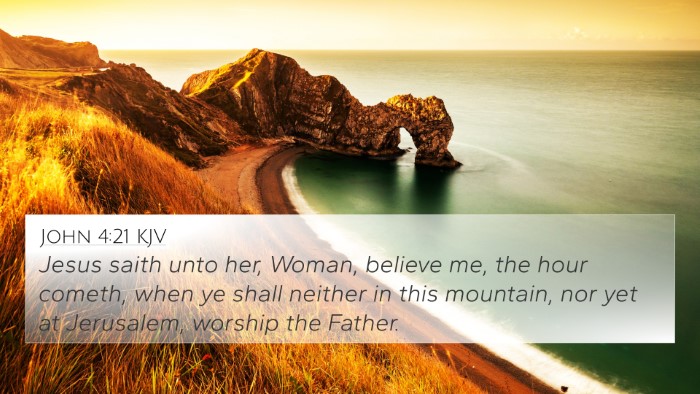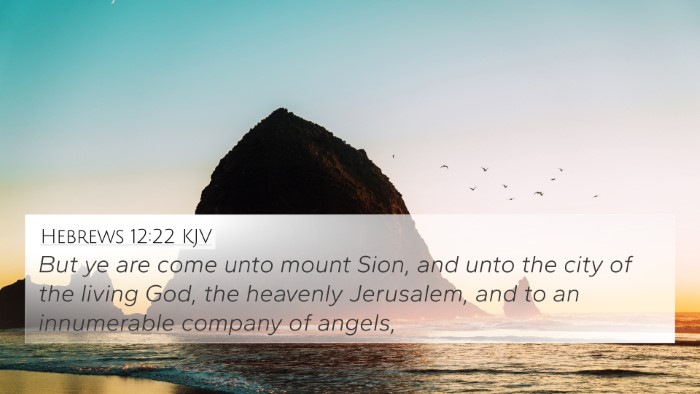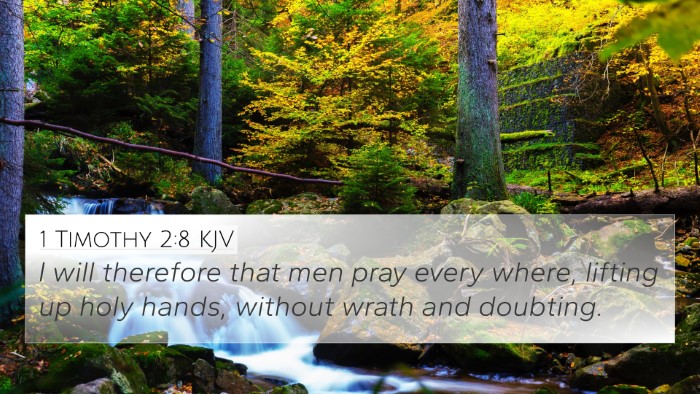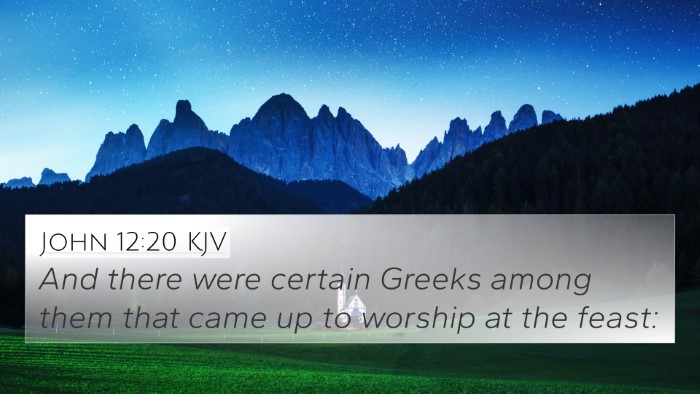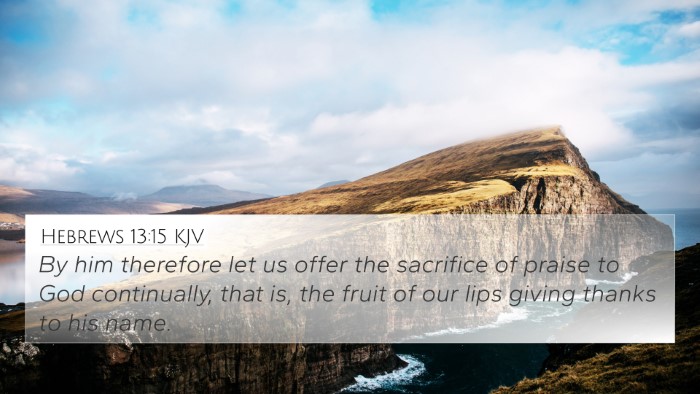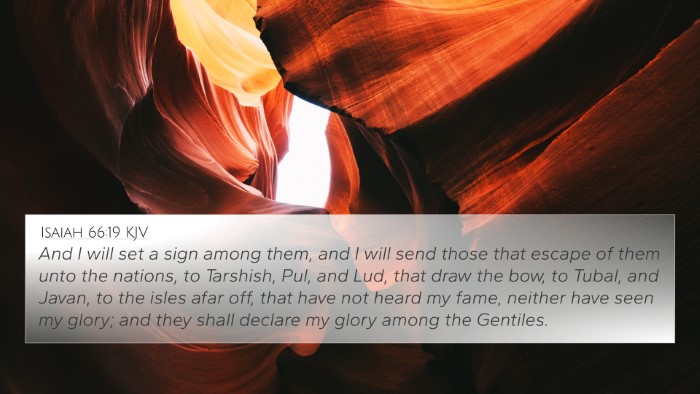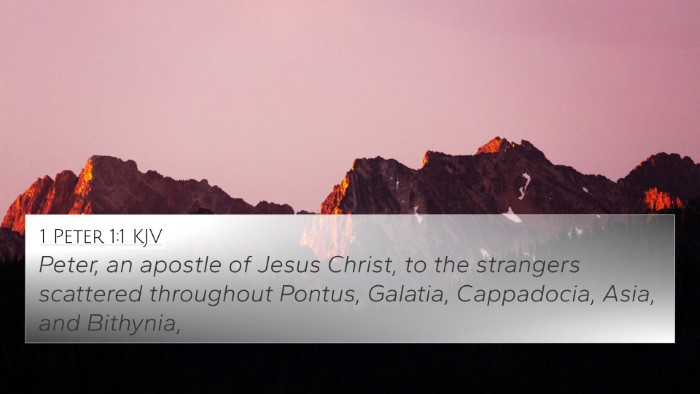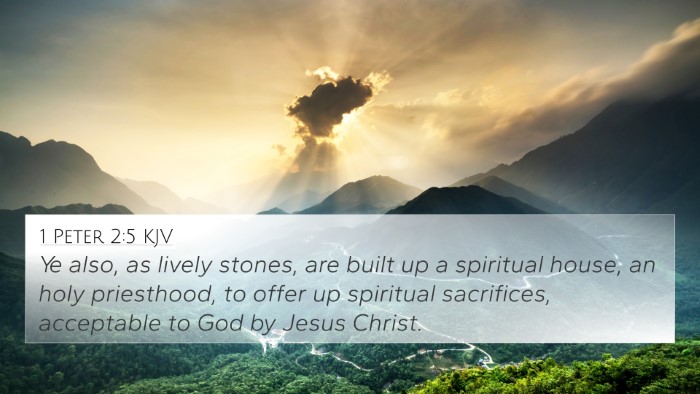Understanding Isaiah 56:7
Isaiah 56:7 states: "Even them will I bring to my holy mountain, and make them joyful in my house of prayer: their burnt offerings and their sacrifices shall be accepted upon mine altar; for mine house shall be called an house of prayer for all people."
Verse Interpretation
This verse emphasizes God's inclusive nature and His desire for all people to come to Him, indicating that His grace extends beyond the confines of Israel to encompass the Gentiles. Through the lens of public domain commentaries, we glean insightful meanings of this profound scripture.
Insights from Matthew Henry's Commentary
Matthew Henry elaborates on the significance of God's invitation to all, stating that His "holy mountain" is a place of communion and acceptance. Henry notes the transformative joy that occurs when those who are marginalized in society – specifically the eunuchs and foreigners – are welcomed into God's presence. The notion of joy in prayer signifies the deep relationship God fosters with His people.
Insights from Albert Barnes' Commentary
Albert Barnes focuses on the expression "my house shall be called a house of prayer." He highlights that prayer is a central element of worship and that God's sanctuary was specifically designated for such sacred communion. Barnes expands this teaching, suggesting that this verse unambiguously points to the universal outreach of God's mercy, thus establishing the house of prayer for all ethnicities and backgrounds.
Insights from Adam Clarke's Commentary
Adam Clarke interprets this verse within the context of recognition that God accepts even the offerings of those who were once deemed outsiders. He reinforces the idea that this passage anticipates the coming of the Messiah, who will further reconcile all nations to God. Clarke discusses the implications of worship and sacrifices, noting that true acceptance lies in the sincerity of one's heart.
Cross-References Related to Isaiah 56:7
- Matthew 21:13: Jesus quotes Isaiah, affirming the temple's purpose as a house of prayer.
- Luke 19:46: Similar to Matthew 21:13, highlighting the importance of prayer in the sanctuary.
- John 10:16: Jesus speaks of other sheep He must bring in, stressing inclusivity.
- Ephesians 2:19-22: Gentiles are fellow citizens with the saints, part of God's household.
- Romans 10:12: Paul teaches there is no distinction between Jew and Greek in the Lord's offerings.
- Acts 10:34-35: Peter acknowledges God's impartiality among nations.
- Isaiah 2:2-3: Prophecy of all nations coming to worship at God's mountain.
- Psalm 86:9: All nations will worship before God's throne.
- Revelation 7:9: A vision of a multitude from every nation worshiping God.
- 1 Timothy 2:4: God's desire for all people to be saved and come to knowledge of the truth.
Thematic Connections
Isaiah 56:7 offers profound themes of acceptance, inclusivity, and joy in worship that are echoed throughout Scripture. The connections between Bible verses enrich our understanding of God's overarching narrative of redemption and grace.
By linking biblical texts, we see not only the unity of God's message but also the invitation for believers to actively engage in cross-referencing Bible study – a tool that enhances spiritual growth and understanding.
Tools for Bible Cross-Referencing
- Bible Concordance: A dictionary of words used in the Bible that helps identify related verses.
- Bible Cross-Reference Guide: Resources that provide connections between various verses throughout Scripture.
- Cross-Reference Bible Study: Methods for exploring interrelated texts to deepen the understanding of themes.
- Bible Reference Resources: Materials that compile and illustrate the relationships between scripture passages.
- Comprehensive Bible Cross-Reference Materials: Detailed tools that assist in drawing connections across the entire biblical canon.
Conclusion
Isaiah 56:7 invites believers to explore the richness of God's inclusive love and emphasizes the joy found in communal prayer and worship. Engaging in comparative Bible verse analysis and exploring the connections between Bible verses can deepen our comprehension of the scriptures and enhance our spiritual journey.
By understanding the meanings behind these verses and their interconnectedness, we become equipped to live out our faith with joy and inclusivity, reflecting God's heart for all people.
As we continue to engage with the Scriptures, let this verse guide our prayers, worship, and outreach efforts within our communities, ensuring that we carry the message of acceptance and love forward.
